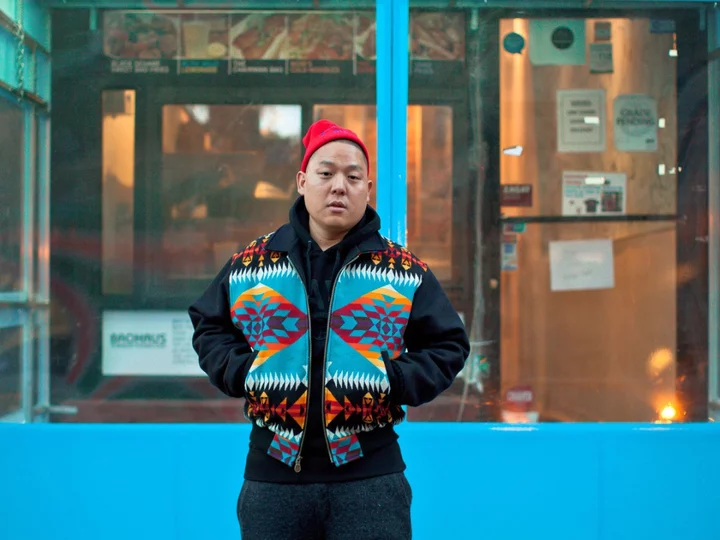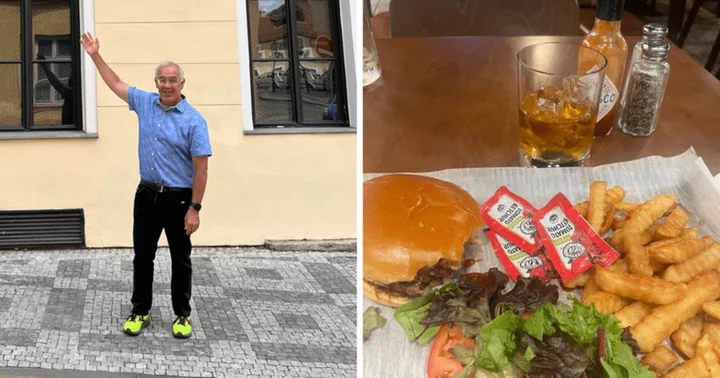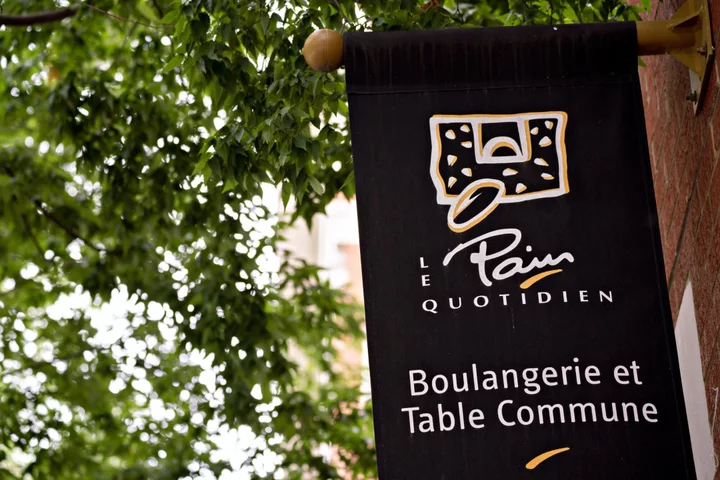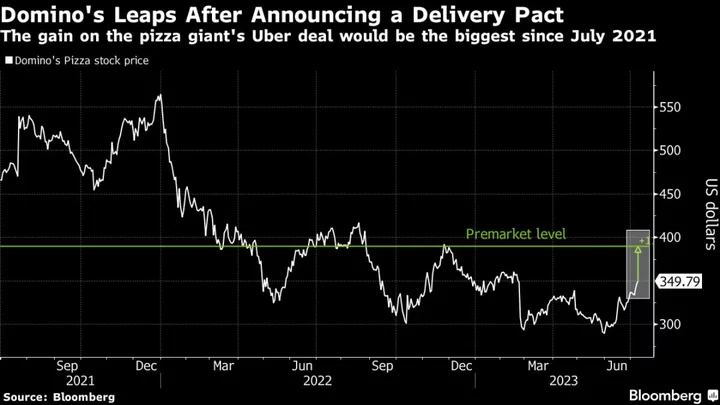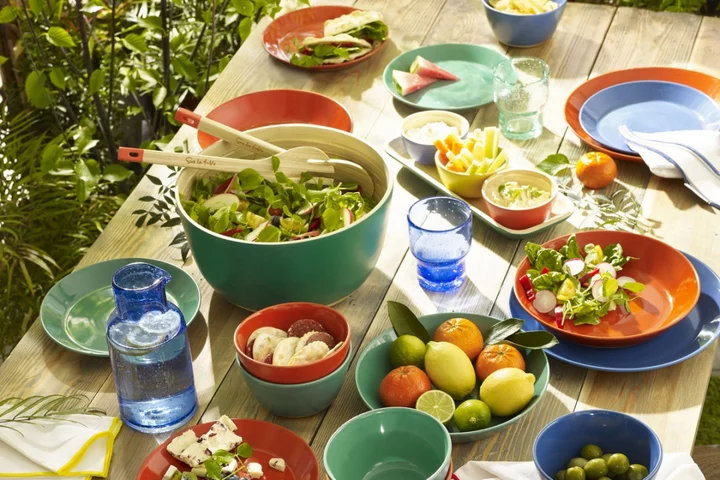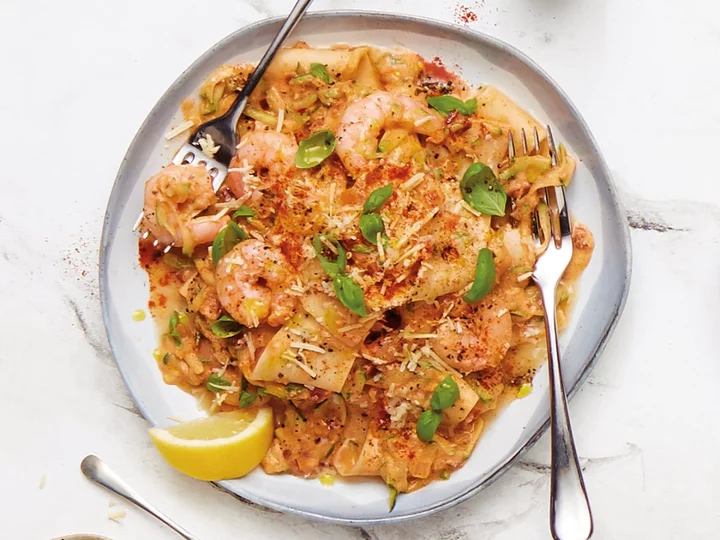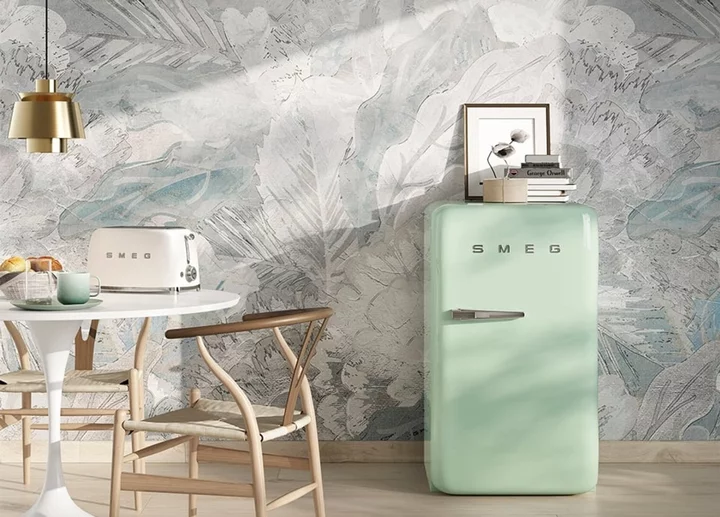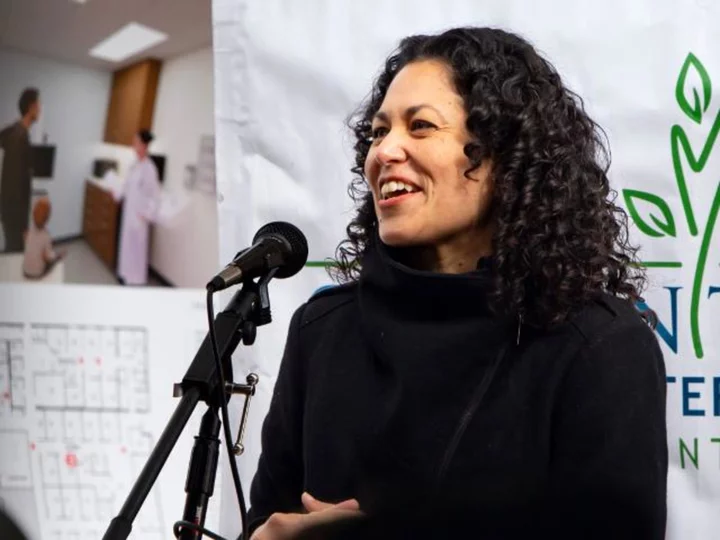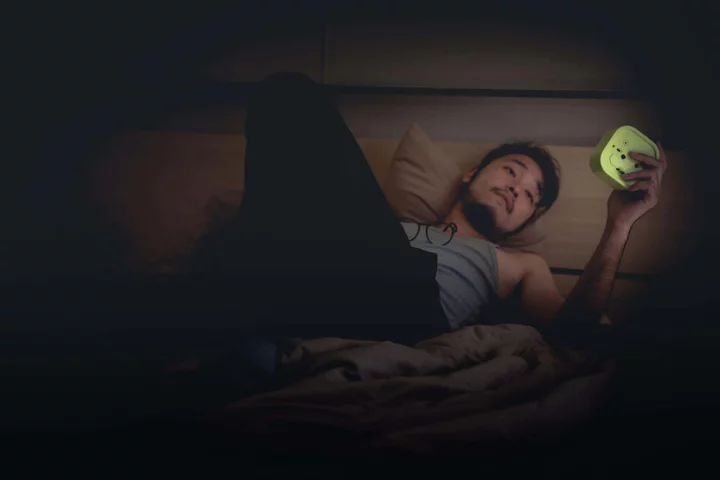For a decade, Baohaus was one of the best-known restaurants for Taiwanese fare in New York City. According to Eater, the restaurant “helped lay the cultural and culinary groundwork for an ambitious class of modern Taiwanese spots” in the city. It also catapulted founder Eddie Huang to fame as his culinary expertise was thrusted into the spotlight with shows on the Cooking Channel (Cheap Bites), Viceland (Huang’s World) and MTV (Snack Off). He first opened Baohaus on the Lower East Side of Lower Manhatten in 2009, before relocating it to a bigger venue in the East Village. During the 10 years he ran Baohaus, Huang also wrote his memoir Fresh Off The Boat, which led to the TV series of the same name, starring Randall Park and Constance Wu. But in 2020, around seven months into the coronavirus pandemic, Huang announced that Baohaus would be no more. At the time, he wrote in an Instagram post: “I opened this restaurant to tell my family’s story through food at a time when no one was giving Asian Americans a chance in TV, film, books or media generally.” Since then, however, things have changed drastically for the diaspora; this year, the celebrated Asian-led cast of Everything Everywhere All At Once clinched seven Oscars, including Best Picture, Best Actor (Michelle Yeoh) and Best Director (Daniel Kwan and Daniel Sheinert). Now, Huang is casting his eye back to Baohaus, but this time he’s bringing it across the pond and into London. His three-month residency at Neighbourhood in Islington – which previously held “ramen junkie” Ivan Orkin’s Ivan Mazemen residency – will dominate this summer with his signature Taiwanese baos, fried chicken and noodle dishes, bringing a bowl of the Big Apple to the Great Smog. I sat down with Huang over a steaming, fragrant bowl of Taiwanese mince pork stew and rice to talk about what Baohaus’ legacy in New York was, its future in London, and what it means to have a vision. How did it feel when you closed Baohaus in NYC? I always loved having Baohaus. I never intended to close it, but the pandemic hit and I went to Taiwan to be safe, but our landlord kept on charging rent in New York. I just didn’t see an end to it. I’ve been wanting to reopen for a while but when I got home, I had to immediately get to work promoting Boogie. It was kind of bittersweet, but I try to think about everything from a more existential perspective. To have owned a restaurant for 10 years in New York while writing a memoir and doing all these shows, and then directing my first film… I just felt an immense sense of accomplishment and I felt like it was really a part of the fabric of downtown New York. So many people had come through those walls and it meant so much to me, so I was just really proud even though it was closing. It forced me to look back on everything and I had a sense of gratitude and pride, and I wasn’t angry at all. I think I was sad that it was closing, but thankful to the universe for the time that I did get. Baohaus left a legacy for Taiwanese food in New York that spread across the rest of the Western world. How does it make you feel? Even when I go back to Taiwan, people will say, ‘Yo, that’s the pork bun kid’. That’s my name back home. I’m very, very grateful that I made a lot of people happy and Taiwanese people were proud of it, and that New Yorkers were proud of it and loved it. But now, starting it back up in London is just par for the course for me. I’ve never lived in one place. Born in DC, grew up in Orlando, made New York my home. I would say I identified with New York more than anywhere else. I got dragged to LA for my work and then now I got dragged out to London to open Baohaus, so this [Neighbourhood] is now the new home base for the next three months. But the idea is to then start to look at brick and mortar spaces in London and hopefully make it more permanent. What makes Bao Haus stand out? There’s a lot of Taiwanese cooking in London now. What really defines my cooking is there is a straight line between my grandma, my mother, and myself. There are very, very small things I do to adapt it up for my taste or modern tastes, but it’s not adding trendy ingredients or smashing things together. For example, this mince pork stew is how my grandma and my mum would make it. The only thing I pay more attention to is knife skills and the exact cut of the pork belly mixed in with the ground meat. It’s the same with the Chairman Bao, it’s exactly like the baos you get in Taiwan except that I red-cook my pork instead of brown braising. So I stay within the Taiwanese pantry, but I really work on the technique. I read that you don’t really like being called a chef. What don’t you like about that chef territory? The thing is, I definitely think cooking is an art, right? Even the guy selling a dollar bowl of rice is just as artistic to me as somebody doing a tasting menu. But I feel like every generation has these chefs whose food always has to be about them. It’s less about culture and community, and more about, ‘Check out my new idea, my new thing’ and none of it ever has staying power. I get disappointed going to a lot of young chef restaurants because they’re working their s*** out and they want you to pay for their food because they feel they’re being creative. Like, ‘Because we were being creative, you should f***ing pay us and buy our food’. And I’m like, well, this just doesn’t taste f***ing good. If you’re going to charge people this, s*** should be good. There’s a lot of ego. A lot of people didn’t set out to be chefs, they say, ‘I was in fashion or I was in music, or I was a director and I busted out and ended up in food’. People see food as a place they can be all artistic and they think they can creative-direct a restaurant, but this s*** is a lot harder than you think. You can have a cool brand and a great vibe, but to keep people coming back for 10 years, your food’s gotta be really good and be a good deal for your customers. Everything is exciting when it’s new, but does it stand the test of time? Do you keep thinking about it the next day? Are you a perfectionist? Here’s an example: chips. We were known for our taro fries in New York. I did taro fries because you can get French fries anywhere, and they go great with our food, but I wanted to do something different. So I would brine the taro, black it and then double fry it, and they were some of the best fries I’ve ever had and people went nuts for them. But it’s much harder to source taro here in London, because I want the whole fresh taro, not frozen. It was proposed that we do French fries, but they were bringing in frozen ones. But I didn’t want anything like that on our menu that isn’t the best version of it. I guarantee you everything on our menu is the best version you can get here in London. No one’s going to touch my bao. I know there’s another place here, BAO. I’m not even going to eat there. I know mine’s better. I will not try it. I will not. So, back to the fries, I said those fries aren’t going on my menu because they’re not the best fries. So now we’re sourcing all kinds of potatoes. Certain restaurants like St John’s only have chips seasonally when the potato is consistent, and I like that. I like when people are like, when it’s good, it’s good, and I will serve it to you then, and when it’s not good, I’m not going to serve it to you. That philosophy needs to be adopted by more. You don’t have to serve everything, you don’t have to do everything. You don’t have to be the most clever. Just be the best version of you and do what you do best. You know, I got a dozen madeleines from St Johns and I smuggled them all the way back to LA. My wife was like, ‘Dude, are these going to be good?’ After my flight and then another day in between, I heated them up and they were phenomenal. I gave some to my dogs – my dogs got to eat St Johns madeleines! They went crazy. You used to host a TV contest show called Snack, where people got random ingredients and had to make something with it. What’s the best thing you made with random ingredients? I invented the Cheeto fried chicken. It happened when I was really high one night. I didn’t have any bread crumbs, so I crushed up Cheetos in a bag, then coated the chicken and fried it. This s*** is crazy. It was a lot of fun but I spent a lot of time on it and then I found the right Cheetos, the right cheese dust, and I think we really perfected the dish. We only offered it once a year on 4/20 at Baohaus, it became a tradition. So if we have a brick and mortar space in London, I would absolutely bring the Cheeto fried chicken bao back only on 4/20. You’ve worn a lot of hats in your lifetime, restaurant owner, chef, author, director, fashion designer. How do you feel about hustle culture? Everything right now is based on the image and identity that you’re selling. Who are my friends? How do I dress? How am I curating my life? What starter pack do I fit into? I get it – I definitely think it’s important to work extremely hard because it’s hard to make money right now. The income inequality gap is insane and my solution to that is to acquire a skill and just refine it. If you have a tangible skill, you’re already ahead of most people in your generation because most people have knowledge and contacts and willingness, but do they have an actual skill? For example, the idea of a creative director is just so funny. What’s the skill? There’s very few creative directors who are skilled and honour the craft, but being a creative director is not just knowing a few really good photographers and good graphic designers and telling them what to do. You’re telling a story, you’re directing the creative. Do you have the vision? It’s not just the mood board, they need to take it seriously. Read More ‘Ramen junkie’ Ivan Orkin on mazemen, MSG and the resilience of the human spirit BBQ salad recipes without a soggy lettuce leaf in sight Grace Dent’s quick and easy recipes that only require the microwave How to shop for and cook Japanese food at home like a pro
For a decade, Baohaus was one of the best-known restaurants for Taiwanese fare in New York City. According to Eater, the restaurant “helped lay the cultural and culinary groundwork for an ambitious class of modern Taiwanese spots” in the city. It also catapulted founder Eddie Huang to fame as his culinary expertise was thrusted into the spotlight with shows on the Cooking Channel (Cheap Bites), Viceland (Huang’s World) and MTV (Snack Off).
He first opened Baohaus on the Lower East Side of Lower Manhatten in 2009, before relocating it to a bigger venue in the East Village. During the 10 years he ran Baohaus, Huang also wrote his memoir Fresh Off The Boat, which led to the TV series of the same name, starring Randall Park and Constance Wu. But in 2020, around seven months into the coronavirus pandemic, Huang announced that Baohaus would be no more.
At the time, he wrote in an Instagram post: “I opened this restaurant to tell my family’s story through food at a time when no one was giving Asian Americans a chance in TV, film, books or media generally.” Since then, however, things have changed drastically for the diaspora; this year, the celebrated Asian-led cast of Everything Everywhere All At Once clinched seven Oscars, including Best Picture, Best Actor (Michelle Yeoh) and Best Director (Daniel Kwan and Daniel Sheinert).
Now, Huang is casting his eye back to Baohaus, but this time he’s bringing it across the pond and into London. His three-month residency at Neighbourhood in Islington – which previously held “ramen junkie” Ivan Orkin’s Ivan Mazemen residency – will dominate this summer with his signature Taiwanese baos, fried chicken and noodle dishes, bringing a bowl of the Big Apple to the Great Smog.
I sat down with Huang over a steaming, fragrant bowl of Taiwanese mince pork stew and rice to talk about what Baohaus’ legacy in New York was, its future in London, and what it means to have a vision.
How did it feel when you closed Baohaus in NYC?
I always loved having Baohaus. I never intended to close it, but the pandemic hit and I went to Taiwan to be safe, but our landlord kept on charging rent in New York. I just didn’t see an end to it. I’ve been wanting to reopen for a while but when I got home, I had to immediately get to work promoting Boogie.
It was kind of bittersweet, but I try to think about everything from a more existential perspective. To have owned a restaurant for 10 years in New York while writing a memoir and doing all these shows, and then directing my first film… I just felt an immense sense of accomplishment and I felt like it was really a part of the fabric of downtown New York. So many people had come through those walls and it meant so much to me, so I was just really proud even though it was closing. It forced me to look back on everything and I had a sense of gratitude and pride, and I wasn’t angry at all. I think I was sad that it was closing, but thankful to the universe for the time that I did get.
Baohaus left a legacy for Taiwanese food in New York that spread across the rest of the Western world. How does it make you feel?
Even when I go back to Taiwan, people will say, ‘Yo, that’s the pork bun kid’. That’s my name back home. I’m very, very grateful that I made a lot of people happy and Taiwanese people were proud of it, and that New Yorkers were proud of it and loved it.
But now, starting it back up in London is just par for the course for me. I’ve never lived in one place. Born in DC, grew up in Orlando, made New York my home. I would say I identified with New York more than anywhere else. I got dragged to LA for my work and then now I got dragged out to London to open Baohaus, so this [Neighbourhood] is now the new home base for the next three months. But the idea is to then start to look at brick and mortar spaces in London and hopefully make it more permanent.
What makes Bao Haus stand out? There’s a lot of Taiwanese cooking in London now.
What really defines my cooking is there is a straight line between my grandma, my mother, and myself. There are very, very small things I do to adapt it up for my taste or modern tastes, but it’s not adding trendy ingredients or smashing things together. For example, this mince pork stew is how my grandma and my mum would make it. The only thing I pay more attention to is knife skills and the exact cut of the pork belly mixed in with the ground meat. It’s the same with the Chairman Bao, it’s exactly like the baos you get in Taiwan except that I red-cook my pork instead of brown braising. So I stay within the Taiwanese pantry, but I really work on the technique.
I read that you don’t really like being called a chef. What don’t you like about that chef territory?
The thing is, I definitely think cooking is an art, right? Even the guy selling a dollar bowl of rice is just as artistic to me as somebody doing a tasting menu. But I feel like every generation has these chefs whose food always has to be about them. It’s less about culture and community, and more about, ‘Check out my new idea, my new thing’ and none of it ever has staying power.
I get disappointed going to a lot of young chef restaurants because they’re working their s*** out and they want you to pay for their food because they feel they’re being creative. Like, ‘Because we were being creative, you should f***ing pay us and buy our food’. And I’m like, well, this just doesn’t taste f***ing good. If you’re going to charge people this, s*** should be good.
There’s a lot of ego. A lot of people didn’t set out to be chefs, they say, ‘I was in fashion or I was in music, or I was a director and I busted out and ended up in food’. People see food as a place they can be all artistic and they think they can creative-direct a restaurant, but this s*** is a lot harder than you think. You can have a cool brand and a great vibe, but to keep people coming back for 10 years, your food’s gotta be really good and be a good deal for your customers. Everything is exciting when it’s new, but does it stand the test of time? Do you keep thinking about it the next day?
Are you a perfectionist?
Here’s an example: chips. We were known for our taro fries in New York. I did taro fries because you can get French fries anywhere, and they go great with our food, but I wanted to do something different. So I would brine the taro, black it and then double fry it, and they were some of the best fries I’ve ever had and people went nuts for them. But it’s much harder to source taro here in London, because I want the whole fresh taro, not frozen.
It was proposed that we do French fries, but they were bringing in frozen ones. But I didn’t want anything like that on our menu that isn’t the best version of it. I guarantee you everything on our menu is the best version you can get here in London. No one’s going to touch my bao.
I know there’s another place here, BAO. I’m not even going to eat there. I know mine’s better. I will not try it. I will not. So, back to the fries, I said those fries aren’t going on my menu because they’re not the best fries. So now we’re sourcing all kinds of potatoes.
Certain restaurants like St John’s only have chips seasonally when the potato is consistent, and I like that. I like when people are like, when it’s good, it’s good, and I will serve it to you then, and when it’s not good, I’m not going to serve it to you. That philosophy needs to be adopted by more. You don’t have to serve everything, you don’t have to do everything. You don’t have to be the most clever. Just be the best version of you and do what you do best.
You know, I got a dozen madeleines from St Johns and I smuggled them all the way back to LA. My wife was like, ‘Dude, are these going to be good?’ After my flight and then another day in between, I heated them up and they were phenomenal. I gave some to my dogs – my dogs got to eat St Johns madeleines! They went crazy.
You used to host a TV contest show called Snack, where people got random ingredients and had to make something with it. What’s the best thing you made with random ingredients?
I invented the Cheeto fried chicken. It happened when I was really high one night. I didn’t have any bread crumbs, so I crushed up Cheetos in a bag, then coated the chicken and fried it. This s*** is crazy. It was a lot of fun but I spent a lot of time on it and then I found the right Cheetos, the right cheese dust, and I think we really perfected the dish. We only offered it once a year on 4/20 at Baohaus, it became a tradition. So if we have a brick and mortar space in London, I would absolutely bring the Cheeto fried chicken bao back only on 4/20.
You’ve worn a lot of hats in your lifetime, restaurant owner, chef, author, director, fashion designer. How do you feel about hustle culture?
Everything right now is based on the image and identity that you’re selling. Who are my friends? How do I dress? How am I curating my life? What starter pack do I fit into? I get it – I definitely think it’s important to work extremely hard because it’s hard to make money right now. The income inequality gap is insane and my solution to that is to acquire a skill and just refine it. If you have a tangible skill, you’re already ahead of most people in your generation because most people have knowledge and contacts and willingness, but do they have an actual skill?
For example, the idea of a creative director is just so funny. What’s the skill? There’s very few creative directors who are skilled and honour the craft, but being a creative director is not just knowing a few really good photographers and good graphic designers and telling them what to do. You’re telling a story, you’re directing the creative. Do you have the vision? It’s not just the mood board, they need to take it seriously.
Read More
‘Ramen junkie’ Ivan Orkin on mazemen, MSG and the resilience of the human spirit
BBQ salad recipes without a soggy lettuce leaf in sight
Grace Dent’s quick and easy recipes that only require the microwave
How to shop for and cook Japanese food at home like a pro

